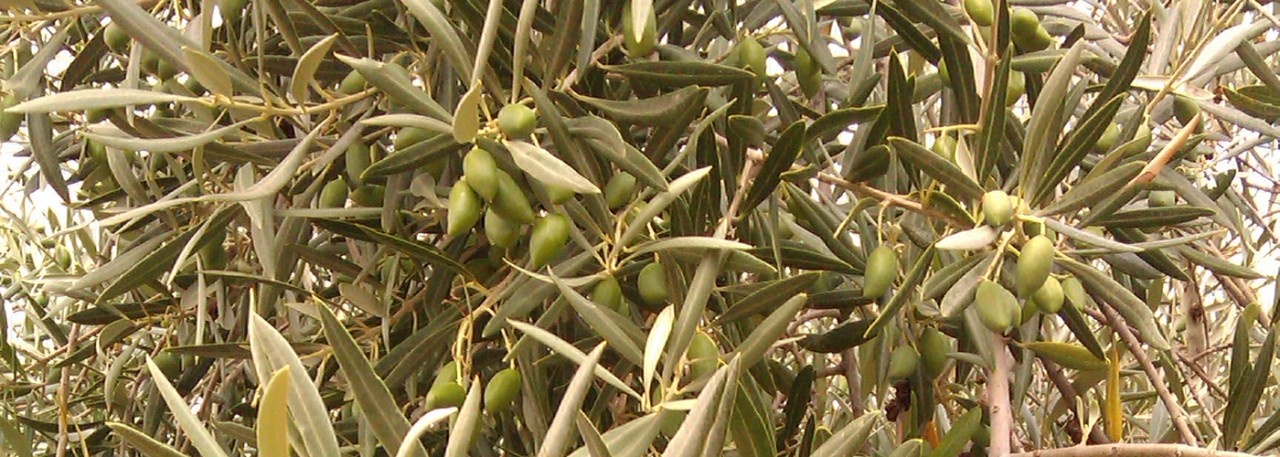.png.transform/rendition-xs/image_image%20(1).png)
Montes de Toledo PDO
Extra virgin olive oil obtained from the fruit of olive trees (Olea europea, L.) of the Cornicabra variety.
Tasting notes
Cornicabra oils are characteristically intensely fresh and fruity. Dominant aromas of green and ripe apples are accompanied by others of fresh grass and, frequently, hints of avocado, citrus and other fruits. In the mouth, the flavor is almondy with medium-level bitterness and piquancy. The color varies depending on the timing of the harvest and geographical location within the region, ranging from golden yellow to deep green.
Other notes
These oils are characterized by their high oleic acid and low linoleic acid content. Because of their high total polyphenol content, they are notably stable - a quality for which they are recognized and appreciated in the market-place.
Production / Processing method
The olives are harvested directly from tree using either the traditional methods of hand-picking and dislodging the olives by shaking the branches with long poles, or mechanical vibrating equipment. These methods are used alternately from one season to the next to avoid damaging the tree. Only olives that have not touched the ground can be used for PDO oil, so they are separated off during harvesting.
The olives are always transported to the mill in bulk, in trailers or rigid containers. They must be delivered to the mill within at most 24 hours of harvesting to prevent their being crushed by their own weight during storage and fermentation setting in.
It is required for an employee in the mill’s reception yard be responsible for ensuring that the delivered olives are accurately classified and separated into quality categories. Each mill must have a system in place that guarantees that olives that have not touched the ground and those that have are unloaded separately, and ensures that the different qualities are kept apart throughout, and are independently processed. By the same token, the yards must have cleaning systems and properly calibrated and approved weighing equipment. Unloading methods must be such as to minimize the potentially damaging effects of the fruit falling freely.
The olives are washed before the pressing stage in water that must be clean, sanitary and free of chlorine or its derivatives. The only permitted co-adjuvant during the grinding and a malaxation (mixing) stage of the process is certified food grade talc, used in quantities of between 0.5 % and 2.0 %. Malaxation must last no longer 60 minutes, and only one cycle is permitted. The temperature during the malaxation process must at no time exceed 30º C (86º F). The temperature of the water and oil mixture during centrifugation must be kept below 35º C (95º F).
The mills are required to classify the oils they produce, while certification is carried out by accredited technicians and laboratories. Certified oils should preferably be stored indoors, and exclusively in stainless steel tanks or containers that are lined in epoxy resin or fiber glass, are light-proof, and properly marked with the name of the Designation of Origin. When storage is outdoors, tanks must be adequately protected against light and temperature variations.
Tanks must be lidded and truncated-cone-shaped or have a tilted flat base so that they can be drained and cleaned out periodically. Storage cellars and tanks must be equipped in such a way that the temperature of the oil they contain never rises above 25%C (77º F).
When oil is transported in bulk to the packaging plant, it must be contained in stainless steel tanks suitable for liquid food products, certified as clean by the transport company. The packaging plant must have systems in place to cater for bottling/canning the DO’s oils separately from the rest. It should also apply standardized systems for measuring the oil.The oils must be packaged in receptacles made of glass, lined metal, PET or glazed ceramic.
Geography / Relief and climate
This is an area of considerable ecological interest (Cabañeros National Park lies within its boundaries), with consistent climate and soil conditions well suited to olive growing. Indeed, traditional farming practices fulfill an important role in conserving the environment.
Overall, the climate in this area is of the Continental Mediterranean type; however, on the basis of slight variations from the thermal norm, a "transitional" area along the northern and southern borders of the Designation of Origin region, has been differentiated as possessing a climate classified as Temperate Continental Mediterranean.
In general, temperatures are suitable for olive trees and their fruit to develop normally, though occasionally the temperature can drop as low as -3º C (26º F). However, such extreme spells rarely last long enough to damage the trees.
Regulatory Council
Fundación Consejo Regulador de la DOP Montes de Toledo
C/ de la Paz, 3
45001 Toledo
Tel: (+34) 925 257 402
info@domontesdetoledo.com
www.domontesdetoledo.com
Sources:
- Spanish Ministry of Agriculture
Because of their high total polyphenol content, they are notably stable - a quality for which they are recognized and appreciated in the market-place.


- Montes de Toledo 1
- Montes de Toledo 2
